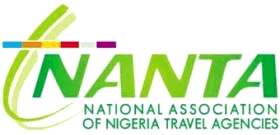 NANTA: Clearance of $850m foreign airlines’ trapped funds deepens Nigeria’s image
NANTA: Clearance of $850m foreign airlines’ trapped funds deepens Nigeria’s image
The National Association of Nigeria Travel Agencies (NANTA), has said that the clearance of $850 million trapped funds belonging to foreign airlines in the country by the Federal Government would further boost the nation’s image in the comunity of nations.
The association also lauded the Federal Government its agencies like the Central Bank of Nigeria (CBN), the Nigeria Civil Aviation Authority (NCAA), Federal Competition and Consumer Protection Commission (FCCPC) and the Ministry of Aviation and Aerospace Development for their commitment in ensuring the vexed trapped funds were cleared by the country.
These were contained in a statement on Thursday by Mr. Yinka Folami, President, NANTA.
Folami stated that its members, just like the travelling public, bore the major brunt of the impact of the trapped funds, but expressed delight with the collective strategic intervention of the government on the issue. Folami explained that their synergy and collaborative efforts, contributed to the current stability in the travel trade market in Nigeria.
He urged that the laudable tone of equity and fair play preached by Mr. Festus Keyamo and the collaborative Inter-Agency Committee on Review of Airfares and Good Practices, which consisted of NCAA, FCCPC, and NANTA should continue for continuous monitoring and stability.
He said: “The Federal Government and its relevant agencies deserve commendation for the speedy resolution of the vexatious trapped funds of foreign airlines in Nigeria. The gesture positively deepens the image of Nigeria as a destination with global rubrics on trade and investments.
“We sincerely urge the CBN to help clear the balance of $19 million owed the foreign airlines and we also expect the foreign airlines to reciprocate by being further receptive in lowering fares and also to work collaboratively to stop the migration of Nigerian travel trade opportunities to cross border trading.”
Proposing stronger and more enduring environment for stable growth of the market, the NANTA President, canvassed the International Air Transport Association (IATA) to be more sensitive to the issues of point-of-sales and the worrisome shrinking Nigerian market, driven by the pattern of application of Return On Equity (ROE) by IATA which, perhaps unintentionally, drives speculation, encouraging parallel market purchases and pressures on naira.
He said this practice leads to the undesirable purchase of Nigeria tickets out of the country and ensures the migration of Nigerian market.
“We believe and trust that IATA can be more circumspect and supportive to check these trends and also show commitment to supporting our government and our businesses as they have done elsewhere. This government has lived up to its promises and deserves support from foreign partners to ensure that our people and businesses are treated with same measure of respect and commitment to shared objectives,” he said.
IATA had earlier in the week in Dubai at its 80th Annual General Meeting (AGM), disclosed that Nigeria had cleared about 98 per cent of the total blocked funds of foreign airlines in the country, remaining only $19 million yet to be cleared.
According to the association, the 98 per cent clearance was at as April 2024. At its peak in June 2023, Nigeria’s blocked funds totalled about $850 million and it significantly affected airline operations and finances into the country.
Mr. Willie Walsh, IATA’s Director-General, said that the remaining $19 million blocked in Nigeria was largely due to the Central Bank of Nigeria’s (CBN) ongoing verification of outstanding forward claims filed by the commercial banks.
Walsh commended the Nigerian Government and the CBN for their efforts to resolve the lingering issue, stressing that the nation’s economy would benefit from it. He said: “Individual Nigerians and the economy will all benefit from reliable air connectivity for which access to revenues is critical. We are on the right path and urge the government to clear the residual $19 million and continue prioritizing aviation.”
